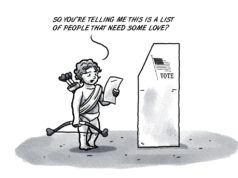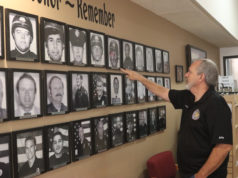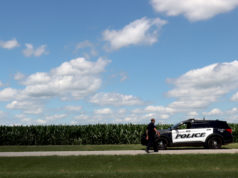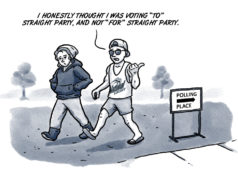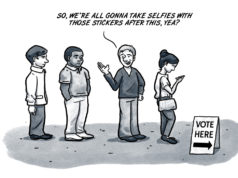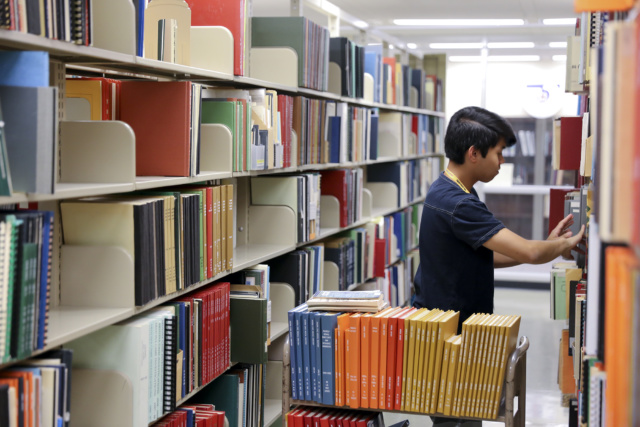
By Elizabeth Campbell
News21
TEMPE, Ariz. — Students at Rollins College in Florida are designing custom “I voted” stickers for absentee voters. On the other side of the country, the University of Southern California has partnered with county officials to host voter registration events with prizes, games and free food. And at the University of Wisconsin-Madison, the student government plans campus-wide voter registration drives as well.
Across America, groups and organizations promoting civic engagement among college students have spent hundreds – if not thousands – of hours trying to galvanize this large yet often elusive group of potential voters.
The Campus Vote Project, one of the most prominent college voter outreach groups, has launched an initiative to establish “voter-friendly” campuses. So far, more than 90 institutions, including Rollins College, have agreed to commit to things such as hosting voter registration drives, inviting candidates to speak or offering rides to the polls to increase voter education, registration and mobilization.
Why go to the trouble of recruiting college voters? College students have the potential to influence elections. There were 17.3 million undergraduate students enrolled in degree-granting postsecondary institutions in 2014, according to the National Center for Education Statistics. Experts predict that population will increase to 19.8 million by 2025.
Yet millennials have the lowest turnout rates of all the generations. Because the majority of college students are under age 25, they make up a significant part of that age group.
Students must show proof of residency
States require voters to be residents before they can cast their ballots there, but each state has different rules and requirements. Some states require voters to show proof such as a utility bill, something students living in campus dorms wouldn’t have. Other states require an ID that includes an address, but many students have driver’s licences from their hometown, not their college residence.
Campus Vote Project Director Mike Burns said this “patchwork” of residency laws and voting requirements often confuses first-time voters and creates barriers for them.
In 1979, the U.S. Supreme Court affirmed a ruling that holding college students to a different standard of residency than other people or requiring them to swear they will remain in the community after graduation violates the 26th Amendment in the case Symm v. United States.
You don’t have to say, ‘I intend to return here forever,’” Burns said. “You don’t need to know that you’re going to be there after graduation. Because it’s based on people’s subjective intent, it’s squishy.”
Appalachian State University student Rachel Clay served as an election protection field coordinator for a campus program and organized poll watchers. She said she and her poll monitors witnessed students at her North Carolina school who had issues meeting voter residency requirements.
We also have a lot of people that live on campus, and they weren’t allowing students to use their on-campus address without proof of residency,” Clay said. “And basically, they weren’t accepting anything for proof of residency, so our on-campus students and our on-campus, out-of-state students didn’t know what to do at all.”
The Federal Voter Registration form states that voter applicants must use their “home address,” and voters can’t use “a post office box or rural route without a box number.”
According to Rock the Vote, college students who only have a P.O. box address can instead use their dorm address for voter registration. Students can sign an affidavit, or in some cases, get a letter from a college’s residential life office, to assert that they live at their dorm address.
Why not just vote by absentee ballot?
Wheaton College student Melissa Gray said students often want to vote where they go to school because of the early deadlines to request an absentee ballot from their home county.
There are a lot of students that find absentee a hassle because you have to do it a long time in advance and turn it in on time,” Gray said.
All 50 states plus Washington, D.C., offer absentee or mail-in ballots. However, some states make it more difficult. Twenty states require an excuse to get an absentee ballot. Delaware even requires voters to have a section of the form notarized.
Voter ID laws create new barriers
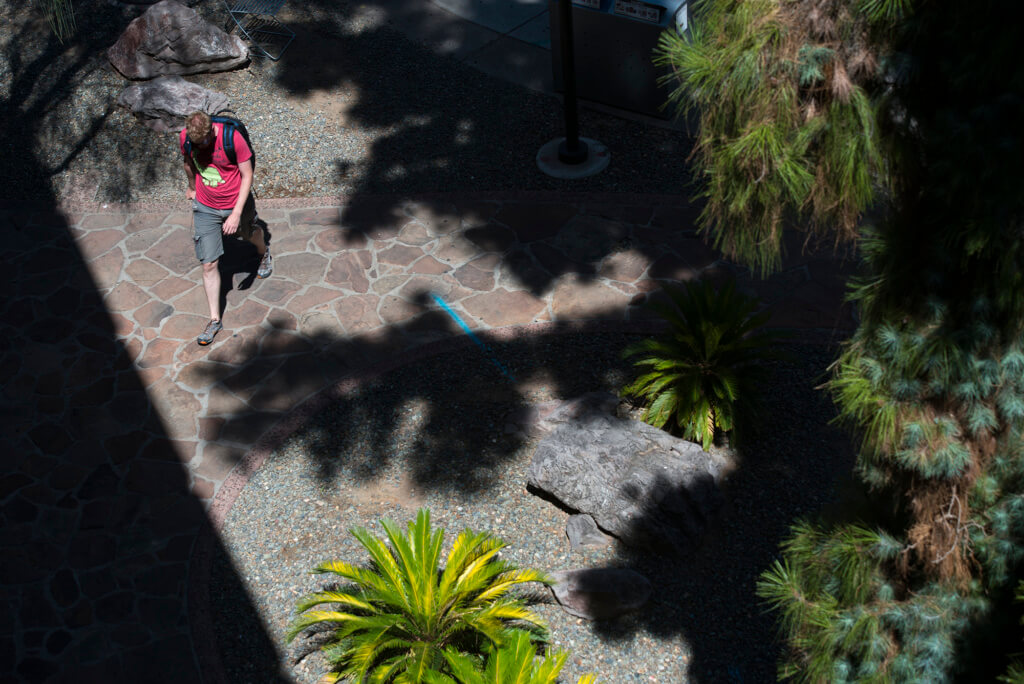
While more states now require IDs at the polls, many don’t accept student IDs as a valid form. Nine states never accept student IDs, and 21 others only accept them if they meet certain criteria such as an address or expiration date.
Why is this a problem? One University of Michigan study indicated that the number of people getting a driver’s license – the most common form of accepted ID at the polls – has declined. In fact, many in younger generations have said they never plan on getting a license. They’re too busy. It’s too expensive to own a car. They can catch a ride from others, according to another University of Michigan study.
Gunther Peck, an associate professor of public policy studies at Duke University, said North Carolina lawmakers changed the law to exclude student IDs after the youth vote helped propel President Barack Obama into office in 2008.
The Republicans knew exactly how to suppress votes. That was their intention,” Peck said. “They looked carefully at how they lost in 2008 and found the weak links in that coalition. The law has made it much harder for students to get the proper ID, and there’s several steps they have to go through now to secure what is a constitutional right: the right to vote.”
Peck said he saw this issue come up during this year’s presidential primary when many students had to vote with a provisional ballot because they didn’t have the proper ID. According to the nonprofit Democracy North Carolina, there were 29,000 provisional ballots they fought to have counted in the election.
To put that in context, that doesn’t sound like a lot, but this state was the closest state in the country the last two election cycles, and the margin of difference in 2008 was 14,000,” Peck said. “So this voting law literally has the impact of flipping a state potentially.”
When the law went into effect, then-North Carolina Republican Party Chairman Claude Pope said in a statement that it would ensure the integrity of the elections.
Signing this bill into law is just plain common sense,” Pope said. “Proper photo identification is needed to do daily tasks in everyday life such as cashing a bank check or boarding an airplane.”
North Carolina’s voter ID law was struck down by a federal appeals court July 29. State officials have said they would appeal.
(Editor’s Note: Natalie Griffin, Amber Reece and Taylor Gilmore contributed to this report.)










